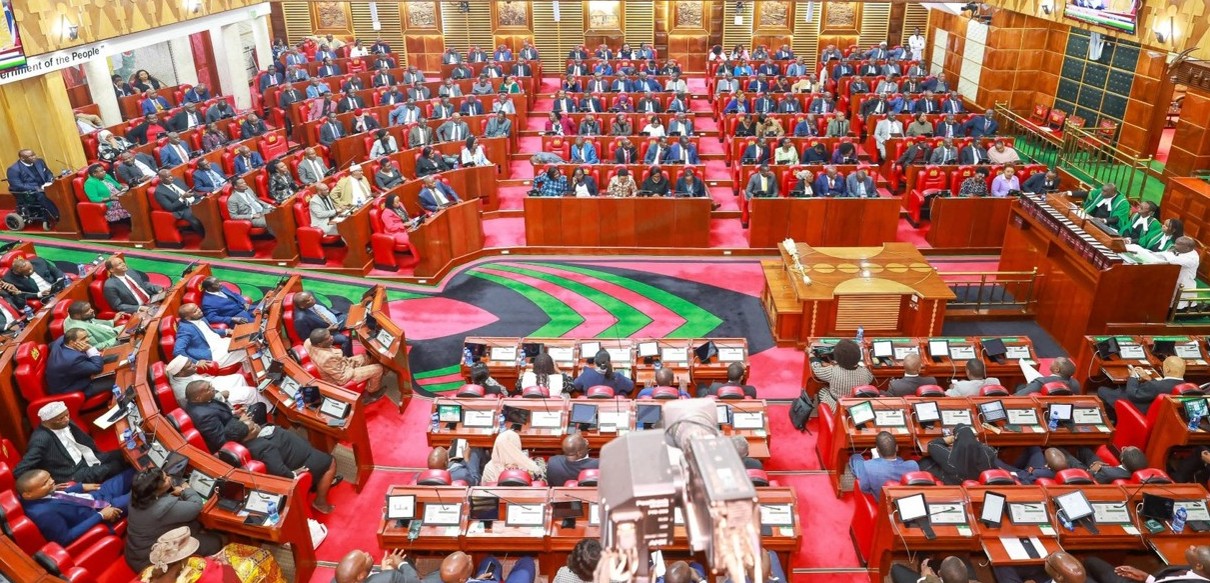Kenya drops to sixth position in Africa trade rankings amid economic, credit challenges

The country ranks after South Africa, Namibia, Mozambique, Tanzania and Nigeria. However, it has outperformed Ghana, Zambia, Uganda and Angola.
Kenya has slipped one position in the latest ranking of business attractiveness and general trade prospects in Africa, according to recent findings from the Stanbic Bank Africa Trade Barometer.
The Index ranks Kenya in sixth place, down from fifth last year, on the back of challenging economic conditions marked by high interest rates and social unrest in the first half of the year.
More To Read
- Stakeholders call for balance between technology and human values as trade summit opens in Mombasa
- Businesses project job growth, stronger sales as festive season draws near
- East Africa to simplify cross-border travel and work through IGAD single visa initiative
- Top 10 largest African economies in 2025 by Gross Domestic Product (GDP)
- Construction sector seen as Kenya’s weakest job creator in 2025, CBK survey shows
- Auditor General flags CBK for hiring unqualified managers, ignoring HR Policies
The country ranks after South Africa, Namibia, Mozambique, Tanzania and Nigeria. However, it has outperformed Ghana, Zambia, Uganda and Angola.
The Index assesses ten key economies in Sub-Saharan Africa with the main objective of providing dynamic and insightful analysis that can intelligently inform and grow Africa's trade ecosystem.
It evaluates factors such as trade openness, access to finance, macroeconomic stability, infrastructure, foreign trade, governance and traders' financial behaviour.
"Kenya's decline to 6th place in trade rankings reflects a drop in business perceptions of export growth, access to credit, infrastructure quality and government support for trade," the Index reads.
This downturn, part of a broader trend over the past three years, has seen Kenya's trade attractiveness drop from fourth place in 2022 to position six, which is the lower half.
Notably, the country recorded drops in macroeconomic stability, governance, quality of infrastructure and access to credit, in a period in which interest rates at commercial banks hit a high of 25 per cent as the Central Bank of Kenya base lending rate rose to a 12-year high of 13 per cent.
Nonetheless, Kenya's business confidence index scored a steady 55 points, mirroring last year's score and summarising the mixed economic sentiments amongst businesses.
"The stability of this score reflects a delicate balance between optimism fuelled by the successful Eurobond buyback, GDP growth and subdued inflation against a backdrop of pessimism due to the contentious tax proposals and resulting protests, which impacted trade and tourism."
Support index for trade experienced the sharpest decline, dropping from 57 to 45, with surveyed Kenyan businesses signalling a decrease in business sentiment towards government backing of cross-border trade.
Larger businesses perceived government support more favourably than smaller enterprises, possibly due to their capacity to leverage available resources and navigate complex regulatory landscapes.
According to the lender, despite initiatives to embrace trade agreements and policy reforms aimed at facilitating trade and reducing barriers, the need for tax relief and improved customs efficiency remains a key concern for businesses striving to engage effectively in cross-border trade.
Access to credit within the period of the survey proved to be another major challenge for Kenyan businesses; the drop in the index from 49 to 45 signalled tighter credit conditions for Kenyan businesses.
Top Stories Today
Reader Comments
Trending












































